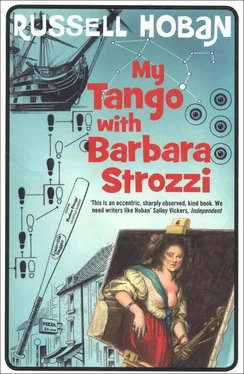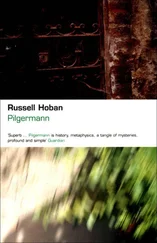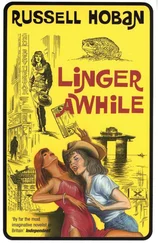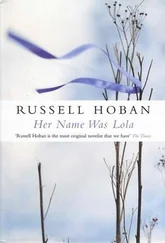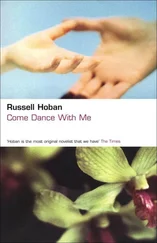Diamond Heart is not cheap. The one thing its varied clientele have in common is that they can all afford it. There are ageing hippies, youthful rebels, stressed-out executives, ex-husbands and ex-wives, broken-down pop stars, actors between (sometimes for years) engagements, and various unemployed of independent means. Cannabis and cocaine are not compulsory. The Diamond Heart complex is made up of dome-shaped buildings (called tholoi in the brochure) overlooking the sea. It has the added attraction of its own myths and legends of which more later.
There were nine people in my group: four men and five women. Three of the women were chronic course-takers with hopeful smiles and it’s-so-nice-to-be-here expressions. The fourth looked dead serious and probably had two or three unpublished novels in her rucksack. The fifth was Constanze Webber. Two of the men looked like course-takers to me and the other two looked serious.
‘Hi, Constanze,’ I said. ‘How’s it going with the music?’
‘Very slowly,’ she said. ‘I’d like to have a go at fiction for a change. I’ve got a couple of ideas for stories but I don’t know how to get started.’
‘I have the same problem,’ said one of the serious men.
‘Me too,’ said one of the female course-takers. ‘I have things in my head but when I try to put them down on paper I can’t get past the first line.’
‘That’s what I’m here for,’ I said.
‘It said in the brochure that Ken Hackett would be doing “The Search for Page One”,’ said Constanze.
‘He’s got flu,’ I said, ‘but not to worry — there’s nothing I don’t know about searching for Page One.’
‘What about finding it?’ she said.
‘Trust me,’ I said. ‘We might get lucky. The most common failing of the inexperienced writer is thinking that you have to begin at the beginning.’
‘Where else would you begin?’ said the dead-serious young woman whose bulging rucksack threatened many pages for me to read.
‘Wherever the thing presents itself to you — the arse or the elbow or the foot. The raw material is showing you that because it’s what you can bring everything out of by working backwards and forwards from it. Look at the opening of Daniel Deronda — it’s not the chronological beginning of the novel; quite a few things have happened and most of the main characters have appeared in the story earlier but not on the page, so from that opening scene in the casino Eliot has to develop people and events around the psychological centre which is the action between Gwendolen Harleth and Daniel Deronda. Because that was the beginning.’
‘In media res,’ said she of the serious rucksack.
‘Exactly,’ I said. ‘In the middle of things is where you often find the beginning.’
‘How many Is in Eliot?’ said one of the course-takers.
‘One,’ I said. ‘What I’d like all of you to do now is to give me whatever you’ve brought with you so I can start reading. If you haven’t brought anything you should write whatever you can for me to look at tomorrow. Don’t demand too much of yourself — heavy expectations tend to be self-defeating.’
Those who had manuscripts passed them along to me while the others scratched their heads, looked around, and slowly put pen to paper. Constanze’s was the last of the mss. It was a single sheet of blue A4 copy paper, somewhat crumpled. On it was printed a single line: ‘“ That’s what uncles do,” he said .’
‘Uncle Teddy?’ I said as various of the group turned to look at me.
Constanze nodded. I put the page into a folder and picked up a thick wodge of paper from the dead-serious girl whose name was Clara Petersen. Low Pressure Love was the title. ‘ It rained whenever we met ’. was the first line. ‘Listen to this,’ I said to the group, and I read them the line. ‘That right away pulls me in,’ I said, ‘because it rings true: there are times like that and there are lives like that. I want to read on and find out who the narrator is and what’s coming next. I already care about the narrator and I want to get into the action. If your story doesn’t engage the reader and make him or her want to know more you haven’t got a story. It doesn’t have to be a person that the reader is drawn in by: Bleak House opens with “implacable November weather”, with mud and smoke and fog and you want to go where the weather is taking you because the writer has made you care by putting you into a place and an atmosphere of impending excitement.’
Some people nodded, others took notes, others did both. I refrained from launching into the first page of Moby Dick although damp drizzly Novembers are a regular feature of my internal climate and I asked Clara to read the whole first page of her ms to the group. It was a good Page One and I made good comments after the reading. The whole novella, which I read later, was excellent. Clara had talent and the necessary strength of character for the long haul and I told her I’d do my best to put her in touch with an agent. She was quite a good-looking girl too, very intense with her dark hair worn long and a Wuthering Heights air about her which would do nicely in jacket photos and book promotion. I couldn’t help wondering what it would be like to live with her and I was glad I didn’t. But now I’m going to leave Clara and the rest of the group in order to report my conversation with Constanze about Uncle Teddy. After supper I found her waiting for me. The summer evening was mild and the sound of the sea had a confidential air. Secrets! it whispered in the hissing of the waves on the strand, Secrets! I hold them, I keep them . There was a little thin sickle moon hanging in the clear sky. Lights glimmered all over Diamond Heart and a murmur of voices rose up with the smell of cannabis and the sound of an accordion and someone singing, in Russian, the song in which the English refrain begins with ‘Those were the days, my friend …’ We passed the Xanadu dome where the drinkers mostly stood outside and made pub noises.
‘Where are we going?’ I said.
‘Kirsty’s Knowe,’ said Constanze. ‘I like to go there to be quiet.’ She took me to a grassy hill overlooking the sea where the susurrus of the waves made a whispering stillness that seemed to wait for something.
‘What’s it waiting for?’ I asked her.
‘Ah!’ she said, ‘you feel it too. This place is haunted. There was a Kirsty who hanged herself when her lover abandoned her. Kirsty’s Fetch, her ghost is called, and men who see it are fated to be drowned. And they say if you go to the Deil’s Hurdies you can hear the voices of the dead.’
‘I don’t see Kirsty’s Fetch so far,’ I said.
‘I don’t think you’re destined to drown.’
‘Are you going to write about Uncle Teddy?’
‘I don’t want to but that line jumped on to the paper and it’s pulling me after it.’
‘All of us have the ghosts of ourselves inside us,’ I said. She turned to me and her five foot ten seemed smaller and unsure. Mostly she looked like a confident winner but now she was touchingly vulnerable — I wanted to cuddle her but it would have been a wrong move and unwanted as well. Moshe Leib’s words recurred to me. ‘There’s a sorrow in you,’ I said, ‘just as there is in all of us. This sorrow clothes itself in various memories. I find it’s best to let the thing get on to the paper. You can always tear it up later if you want to.’
Looking out into the sea-dark she said, ‘He used to take me on his lap. Once, when I was ten, he put his hand …’
‘Stop!’ I said. ‘Don’t talk it out — get it down on paper and maybe it’ll lead to something further.’
Читать дальше
